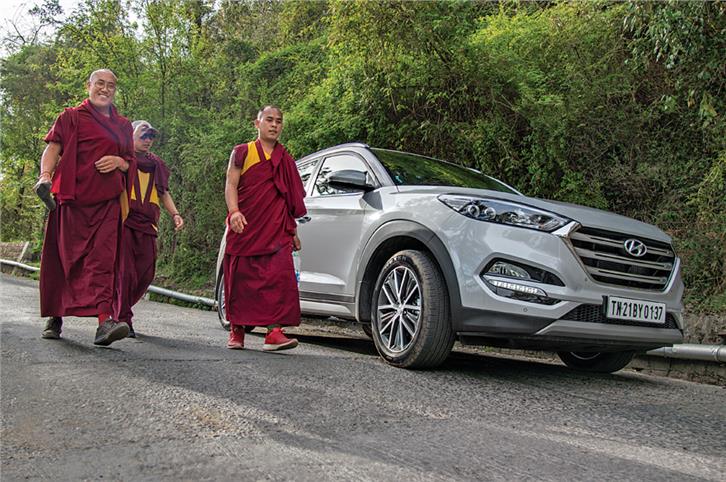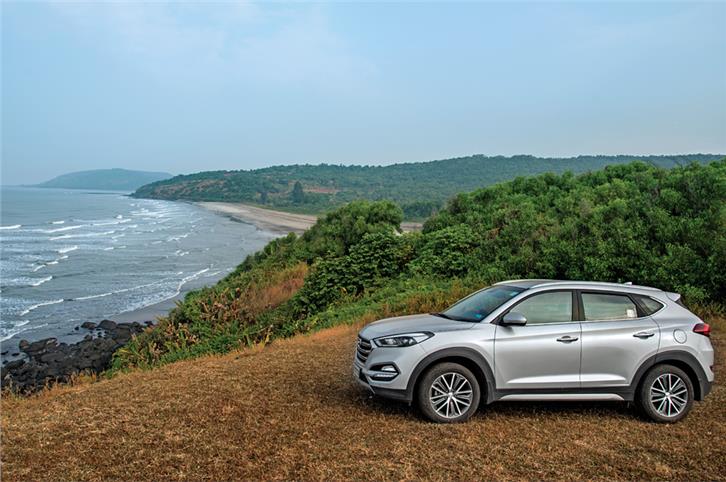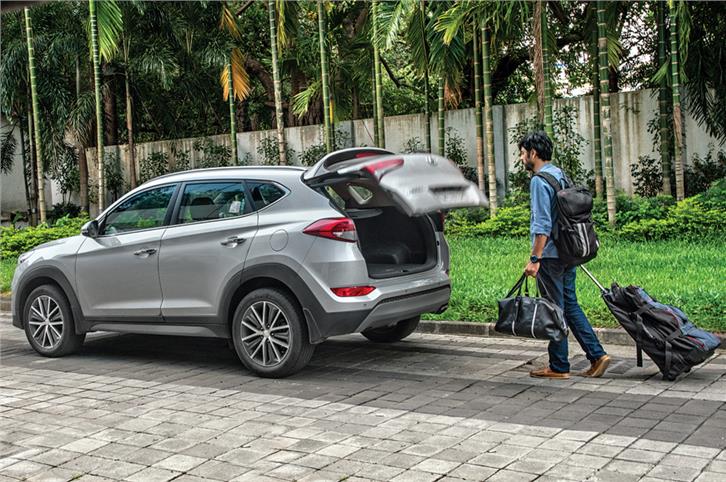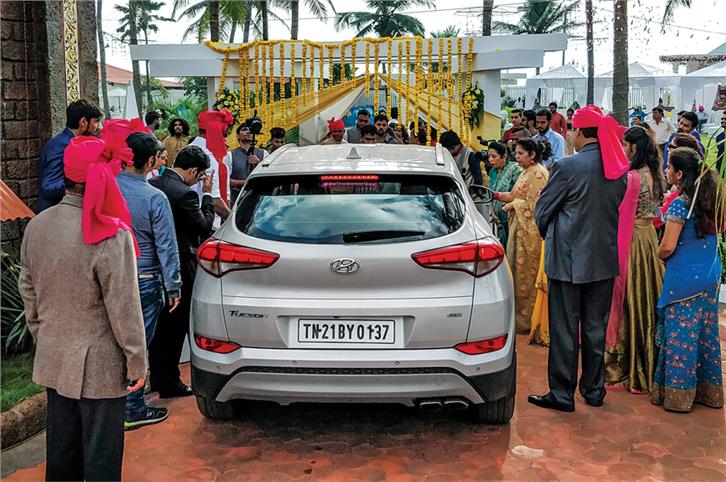The Tucson makes its way back after an adventure-filled two years with us.
Published on Mar 25, 2019 06:00:00 AM
22,585 Views
Follow us on
The drive from Dalhousie to Nepal was surely a memorable one.


Auto-opening tailgate helps when you have your hands full.

Of course, it was part of all the festivities and celebrations.
In its two-year stint with us, our long-term Hyundai Tucson racked up 35,000km. Suffice to say, it has been one of the most hardworking cars in the Autocar fleet. The SUV has racked up the miles doing boring office commutes and exciting out-of-town getaways, and in just about every scenario, the Tucson has come across as a polished companion.

It has always been my pick of the long-term fleet whenever I planned to go on a long road trip; and for good reason – it offers a combination of great touring ability, comfort, a spacious boot and a large 62-litre fuel tank. Fuel efficiency has also been quite impressive for an SUV of this size, especially considering it has an automatic gearbox. A range of over 700km on a single tank of diesel translated to fewer stops for refuelling, and I hate making frequent halts so the long range was something I really appreciated. What I also liked about the Tucson was that despite returning a good 10-12kpl on average, there is no compromise in the way it delivers power. The strong mid-range is quite addictive and that makes it effortless while overtaking. I found the driving modes to be very useful as well. Normal mode and Eco mode worked best for me while driving in the city, where the throttle responded in a nice linear manner. Out on the highways, Sport mode worked wonderfully, making it very easy to access the slightest demand of power from the motor.

Something that worked really well for me was the space on offer; it’s got a roomy cabin and the seats are very comfortable as well. However, a steady complaint from my co-passengers has been about the low seat height. There’s no way to adjust the co-driver’s seat height; even manual adjust could have been included. The light-coloured seats started showing signs of wear, with the driver seat in particular fading. What really added to the Tuscon’s utility though was its boot, which is large and it has a foldable parcel shelf that helps free up additional vertical space. I’ve done multiple airport pick-ups and drop-offs for family and friends and the boot has easily swallowed three to four full-sized suitcases, along with a couple of soft duffle bags. What really made it a rock star of a car, however, were the rear seats that can fold completely flat, expanding the boot space to nearly double its size! And thanks to all this space I managed to move almost all my stuff into my new apartment using just the Tucson.

Of the other things, I was impressed with the headlights and tyres. The projector headlamps illuminate the roads really well when driving in the dark, and the Nexen tyres have phenomenal grip with the best bit about them being that they don’t screech easily. And even now, to my eyes at least, the Tucson still looks really attractive. It’s got that big, expensive-car look that you’d expect on something that costs upwards of Rs 30 lakh on-road.

Coming to the bad bits, if I really had to pick one it would be the suspension travel. The short travel over bumps and poor sections of the road makes the suspension bottom out quite easily. But that’s where the negatives end for me. The ‘ownership’ experience was more than satisfactory too. Yes, there were a few issues on the way, like the air-con system that packed up but it was quickly addressed and rectified. Otherwise, the SUV was hassle-free to run with only scheduled service visits to the Hyundai workshop.
So as you might have guessed, I really enjoyed my time with the Tucson. So much so, that I kept it
for (whisper it) a year over its scheduled tenure – but as they say, all’s fair in love and war.

I am planning to do many long road trips in the coming months and I heard the Tucson facelift is expected to be launched in May, this year. Hey Hyundai, are you thinking what I’m thinking?
Also see:
2017 Hyundai Tucson long term review, fifth report
2017 Hyundai Tucson long term review, fourth report
2017 Hyundai Tucson long term review, third report
2017 Hyundai Tucson long term review, second report
2017 Hyundai Tucson long term review, first report
2018 Hyundai Tucson AWD vs Volkswagen Tiguan comparison
2018 Hyundai Tucson AWD review, first drive
| Fact File | Petrol |
|---|---|
| Distance covered | 35,000km |
| Price when new | Rs 26.94 lakh (ex-showroom, Delhi) |
| Test economy | 11.52kpl (Overall) |
| Maintenance costs | None |
| Faults | None |
| Previous Report | March, October 2017; March, July, October 2018 |
Copyright (c) Autocar India. All rights reserved.

Maruti Suzuki plans to use the Boosterjet engine in more models. Which one would you like to see it in?
Comments
Member Login
Personal Details
No comments yet. Be the first to comment.